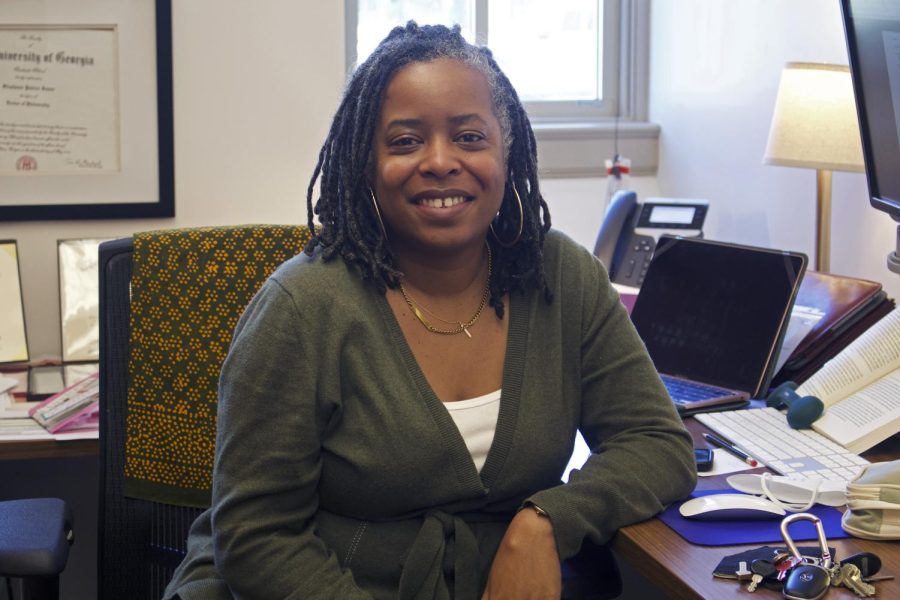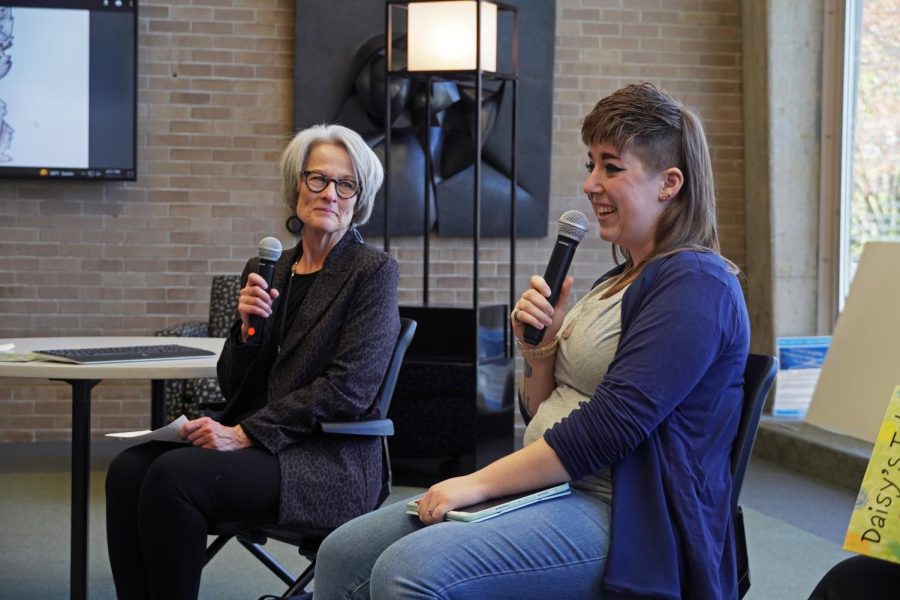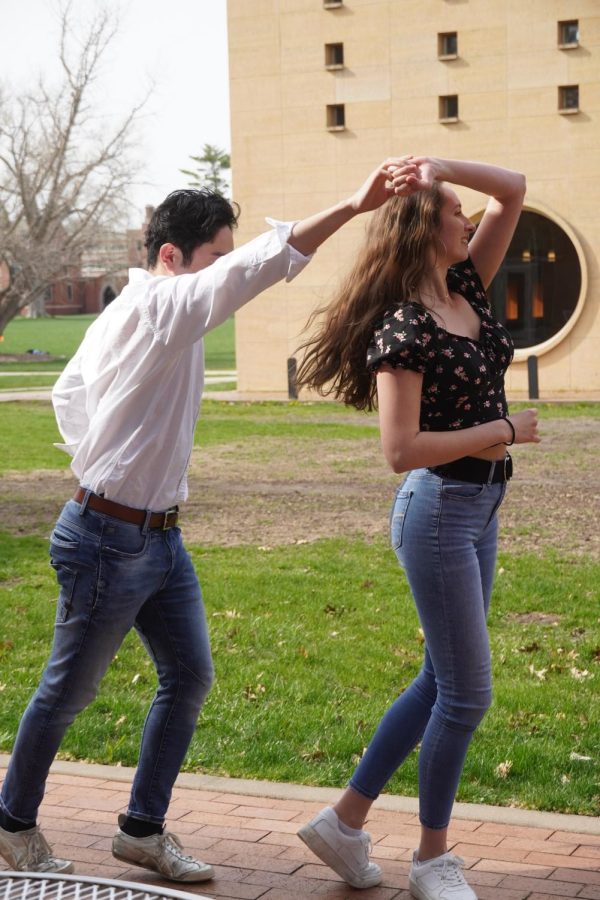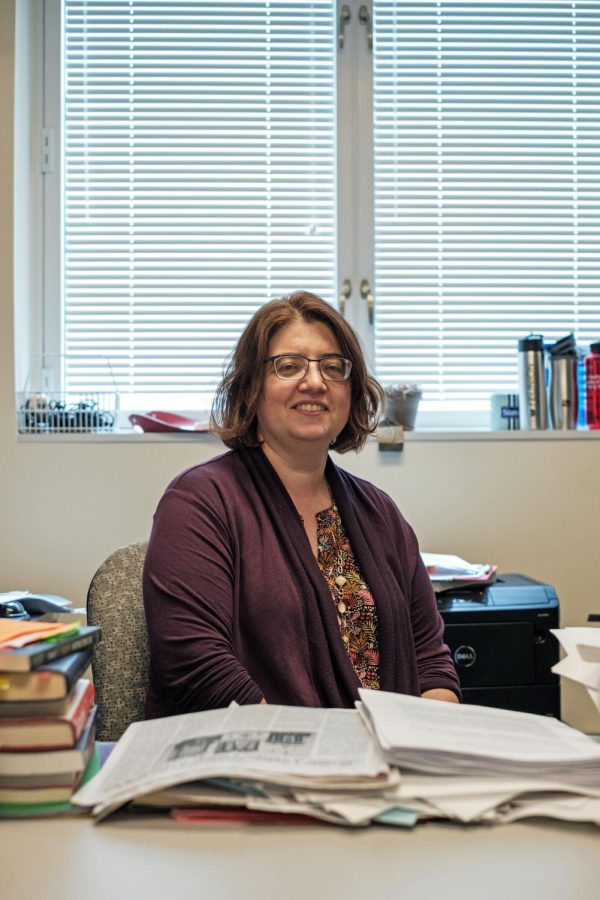Of the nine professors in the psychology department, nearly half are leaving or retiring at the conclusion of this academic year. Psychology students and Student Educational Policy Committee (SEPC) members hope the hiring of three new professors will be an opportunity to create a more diverse, less white department and curriculum.
Professors Janet Gibson, Laura Sinnet, Emma Kelty-Stephen and Damian Kelty-Stephen are finishing up their last terms at Grinnell. Three new professors, who will be publicly announced after the school year ends, will teach starting in the fall.

Professor Gibson has been a Grinnell professor for just under 32 years, focusing on cognitive psychology and humor. In the summer, Gibson will move to Florida, COVID-permitting. She has family there and will live in The Villages, Florida, which isa retirement city with many other retired professors from around the country. The Villages is an active community for people over 55 years where Gibson plans to write, paint and bowl.
Currently, Gibson is in the process of packing up her office and separating out items that the new professors could find useful. Most of her advisees have graduated or picked new advisers, but she helped all of them through a final pre-registration. Her Grinnell email will still be active, and she expects that former students will contact her because that is what former students do.
“There are connections that go on for years because they [former students] have a question or they want to link up with a prof from 5 years ago,” Gibson said.
Andrew Jopeck ’22 is one of Gibson’s advisees. He has known since before leaving campus last March that Gibson was planning to retire. “I had crossed my fingers [that she wouldn’t retire,] but yeah. That’s something you have to be ready for with professors that are near retiring age.” Gibson has been his advisor all 3 years at Grinnell, starting during his first-year tutorial, the Psychology of Humor.
Aru Fatehpuria ‘21 of the Psychology SEPC said that she expects a cultural shift. “A lot of the professors who are here have been here for such a long time … The professors that come here are going to be very different.”

The Psychology Department conducted the the selection process by inviting students and faculty to share their opinions and conducting interview the four final applicants.
Before selecting the new faculty, the SEPC joined faculty and students to attend the final applicants research presentations. Students and professors gave their opinions about the applicant and their research in a Google form.
The SEPC students then had hour-long interviews with each applicant about their research, philosophy of teaching, what changes they would make. SEPC member Philip Le ’22 said that he was looking specifically for ways in which the applicants addressed values of diversity and inclusion in their mindsets and the way they plan to lead courses.
At present, the psychology department faculty are all white. Le said that multiple psychology majors over the years have told the SEPC about uncomfortable situations caused by a white dominated space.
Psychology students over the years suggested that studies and courses could benefit from more cultural as well as racial diversity, Le said. The dominant theories and norms in psychology were based on WEIRD (Western Educated Industrialized Rich Democratic) populations. Fatehpuria said that she expects the new professors to teach their courses using research that includes underrepresented populations.
Le said that he thinks the new professors will be a good change. “I think it’s going to give the department a fresh air. These applicants are young, they’re coming from various backgrounds. That will help the students a lot.”

Two of the newly introduced classes are the Psychology of Gender and Multicultural Psychology.
Fatehpuria said she has high regard of the incoming professors, especially when it comes to their focus on diverse populations. She paraphrased one of the professors, saying her thinking framework changed from “’We need to be careful about how we generalize [the study]’ to ‘we need to be careful about how we generalize psychology’.” She said that one of the new professors wants to reframe how students look at the discipline of psychology and broadly see the limitations of psychology as a whole.
Jopeck said he was concerned when he learned that four of the nine professors in the Psychology Department were leaving. He specifically said losing both Research Methods professors, a core class for the psychology major, caused some worry.
When Professor Ralston sent out an email recently that introduced the three incoming professors to the psychology students, Jopeck said that gained confidence in the new arrivals.
“It’s always good to see new professors, especially younger ones,” Jopeck said, pointing out that the job market for new professors is wanting. Jopeck still has some apprehension, though. “It takes time for a new professor to get used to a new college, new student body, new culture and all that.
”Of the new professors Fatehpuria said, “They’re focused on hands-on research and class discussions where you can talk about your ideas and interpretations of the research, it’ll be a really rewarding and collaborate classroom environment.”
She also said that it was easy to see how passionate the incoming professors were about social justice and their research.
“After the interviews, the whole SEPC was just like, ‘Wow, they’re so awesome,’” Fatehpuria said.
Editor’s Note: A previous version of this article stated that the SEPC led the hiring process. This has been changed to reflect the while the SEPC was involved, the department led the hiring process and the SEPC was involved in a later stage of it. Paragraphs have also been rearranged, as the previous arrangement incorrectly implied that specific professors were involved in students’ negative experiences. The S&B regrets this error. 5/4/21, 8:47 a.m..





























































